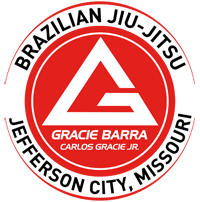A Comparison of Jiu Jitsu to Karate for Self Defense
A Comparison of Jiu Jitsu to Karate for Self Defense
We have a lot of people come into our school with the expectation of learning Karate. Jiu Jitsu is relatively new and along with the rise of its use in the UFC is now one of the fastest growing sports in the world. While both Karate and Jiu Jitsu are considered martial arts, there are a few differences I wanted to explore between the two.
1. Ground vs. Standing Self-Defense
The majority of Jiu Jitsu is self defense on the ground. The majority of Karate is self defense from a standing position. Students learning Karate focus on punching, kicking, and blocking. Of course we wouldn’t say that Karate is useless as learning to defend yourself standing up is just as important as it is from the ground however, being able to do so standing up depends on more factors than you can control. The difference in size between two people, and ground you’re standing on whether sturdy or slippery are two examples. I am 107 pounds, 5 foot tall. A larger male with longer reach can possibly knock me out with one punch. Jiu Jitsu was created so that a smaller, weaker person can defeat a larger, stronger opponent.
2. Stopping an Opponent by Submission vs. Trauma
The focus of Karate is learning to hit the opponent as much as it is avoiding the opponent. However, realize that the focus is hitting the opponent to stop an attack. I think anyone would do whatever is necessary to stop an attack but there is value in teaching students to stop someone without hurting them. With kids, we want them to learn to defend themselves but punching another kid in the head could ultimately cause trauma with implications they are not ready to deal with. Jiu Jitsu is known as the gentle art for a reason. In a world where accidentally hurting someone in a self defense situation could potentially be questioned, it’s better to be safe than sorry.
3. Slow Progression vs. Quick
Because every martial art is different, the progression in belts is also different. First, I would not discredit any black belt because it took less time to earn than another. Any person that puts in their time and dedication towards that belt should be respected, no matter the art. The belt is a representation of skill. In karate for example, it is not uncommon for a teenager to earn their black belt if they’ve trained for an average of 5 years. In comparison, a black belt in Jiu Jitsu is one of the hardest to achieve with an average of 10 years. Our kids have a different belt system than adults and can enter the adult system at blue belt at 16 years old, with many more years to put in before earning their black belt. It is not that we pride ourselves in being the hardest but, there is so much to learn in Jiu Jitsu, the sky’s the limit. It is a sport where you can always learn something new, a sport that will never become repetitive. As a school teacher, a student told me he quit within a few months of his black belt in Karate. He felt that at that point, he had completed the task, mastered the sport, and it began to become the same thing day after day. In essence, he was no longer challenged and his love for the sport faded. Where would you go from there? It is not the amount of time to earn black belts that I’m debating as it depends on so many factors but, it is the amount of knowledge that can be gained for the sport of Jiu Jitsu that I believe keep kids and adults engaged, keep us wanting more, keep us interested, keeps our minds and bodies working.
I hope that this quick comparison gives you a better understanding for what Jiu Jitsu is. Remember, I only compared it to Karate because most people ask if what we do is anything like Karate. I train Jiu Jitsu for all of the above reasons. If even one of the above reasons resonated with you, try a free class with us to find out more. You have nothing to lose and so much more to gain.
Set up your free class here
Credits: Oly Warner
